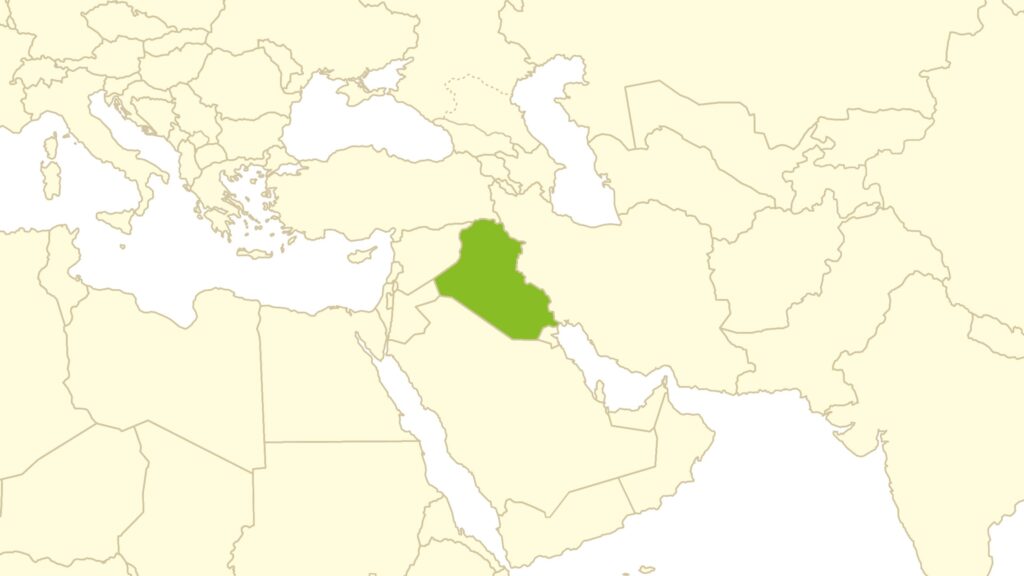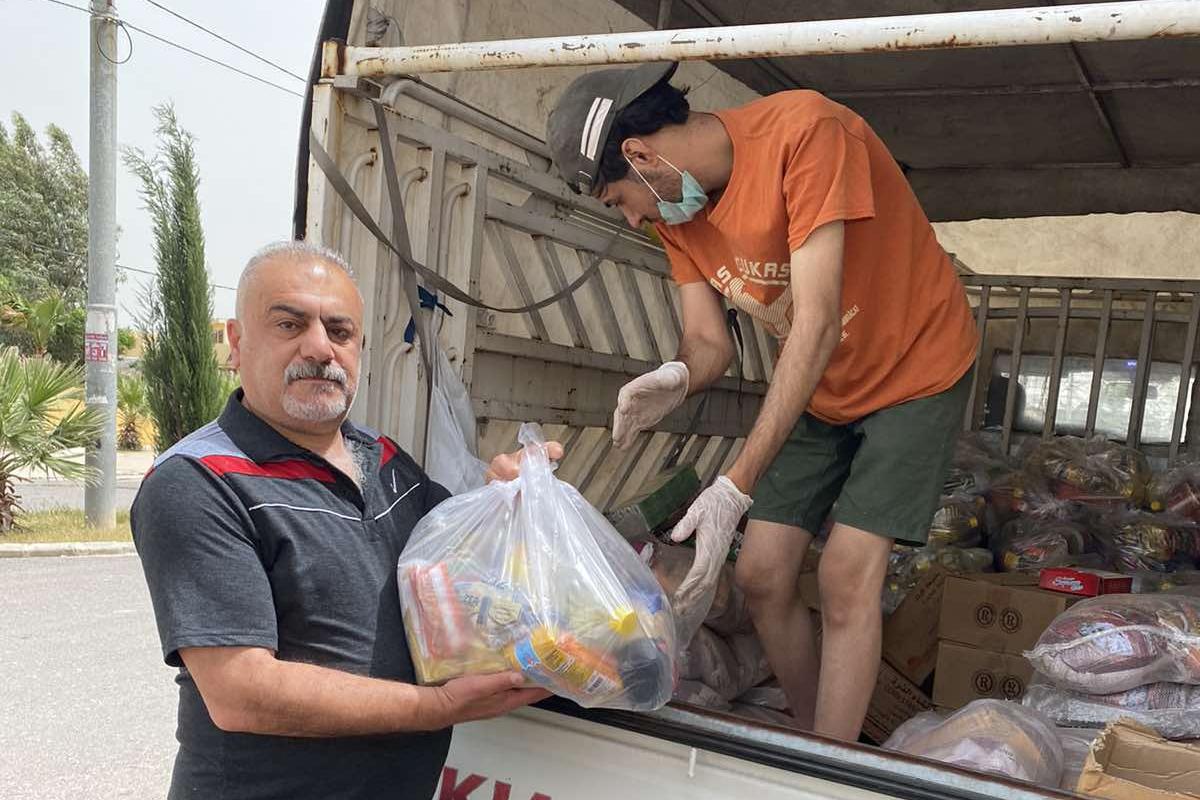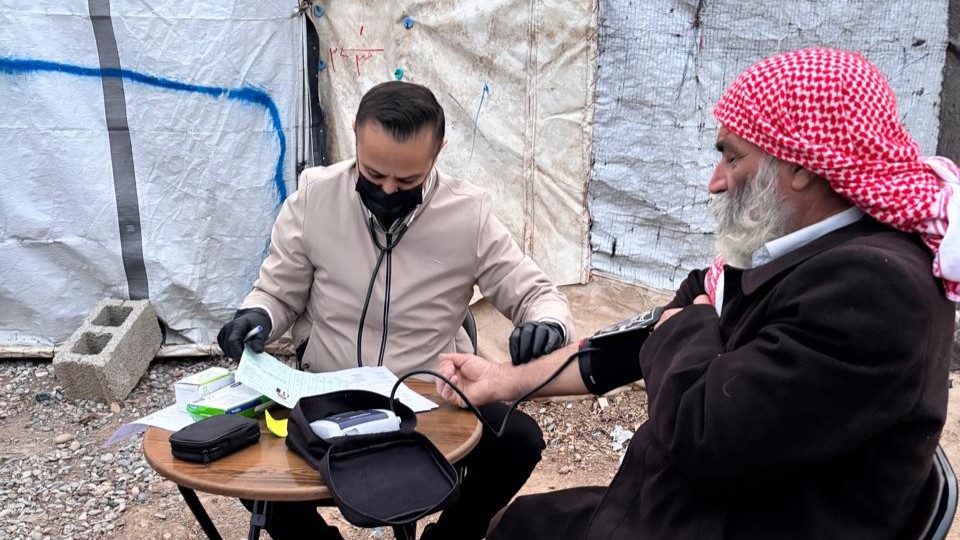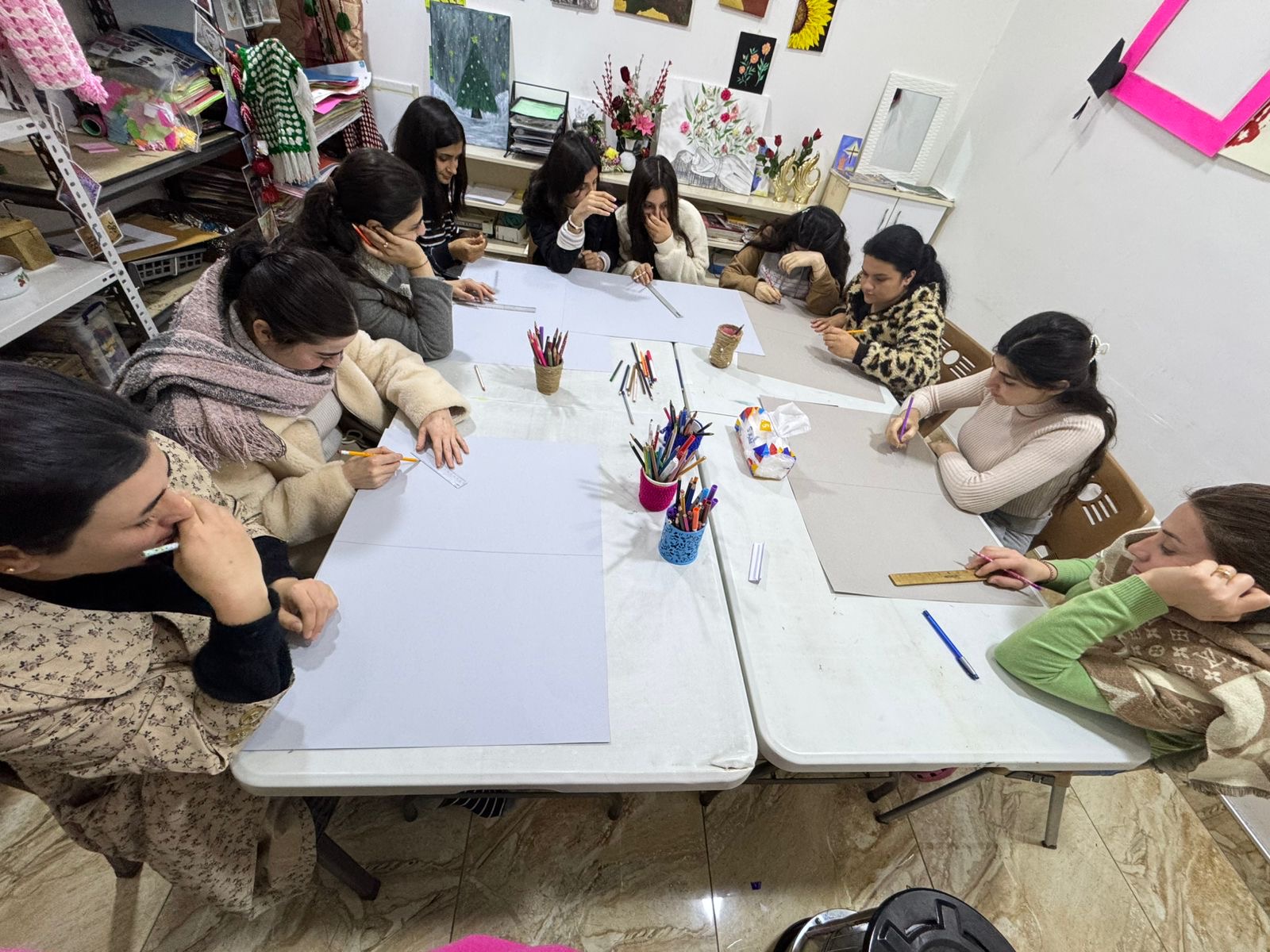Iraq
Shaping the Future Together

Situation report
In 2024, tensions in the Middle East repeatedly made headlines around the world. As a Middle Eastern nation, Iraq, like its neighbours, sees itself as being at the mercy of these tensions. The fear of war and the associated destructive consequences is clearly felt throughout the entire region. This is the case also in Iraq, even though the country has been in a tentative peace for several years. However, after the various wars of the last decades, Iraq is still waiting for an economic upswing.
The difficult economic situation repeatedly leads to protests and unrest. Residents still suffer from a lack of security, especially in areas that were formerly under the rule of ISIS. As a result, many people in Iraq continue to depend on outside help.
1. Emergency Relief for People in Need
After decades of war, there are still officially over a million refugees and internally displaced persons living in Iraq. However, estimates suggest that the number of people in need is much higher. Households headed by war widows are among the most severely affected. Anugerah provided regular food parcels to a total of over 700 households during the reporting year. These parcels served to support the families in their difficult situation and encouraged them in a very practical way. Anugerah works with a network of experienced locals to distribute the parcels.

2. Trauma Recovery and Medical Aid
The wars of the past and the tensions of the present have not only damaged the country economically, but have above all hurt people, both physically and psychologically. Anugerah continued to support a local programme that provides care for particularly traumatised individuals. These are mostly Yazidi women who have suffered terrible abuse at the hands of ISIS terrorists. In courses lasting several weeks, they are taught how to cope with their experiences. Injuries and trauma are addressed by trained staff. In addition to looking back, they are also encouraged to look forward. The participants receive basic training in a profession. This not only boosts their self-esteem, but also helps to support their families, most of whom still live in camps.
To help those in need in camps and remote villages, Anugerah also supported another medical aid programme. A team visits the villages and camps at regular intervals to offer free check-ups and medication. Both programmes were well received.

3. education and income support
For the country’s reconstruction, the young generation is a cornerstone. One day, they will start families in Iraq and help shape the country. To ensure that this happens successfully and inclusively, Anugerah supported a local initiative that aims to promote school education. This enabled financially weak and socially disadvantaged families to give their children an adequate school education, which forms the basis for actively helping to shape the future of the country.
Together with the local initiative, Anugerah supported over 500 schoolchildren and their families in 2024. Our partner repeatedly reports on the immense gratitude of the pupils, their parents and the schools themselves. They all recognise and appreciate the huge impact of the support for their young generation.

Project Conclusion
Despite regional challenges, Anugerah can look back with gratitude on its projects in Iraq in 2024. Thanks are due above all to the local teams, who worked tirelessly with passion, creativity and helpfulness to meet people’s needs and to tackle problems where it was needed. Anugerah would also like to thank its supporters in Switzerland for their excellent and ongoing partnership for the benefit of those in need in Iraq. The Anugerah association wishes all project participants and beneficiaries all the best for the future and will continue its commitment with optimism.
